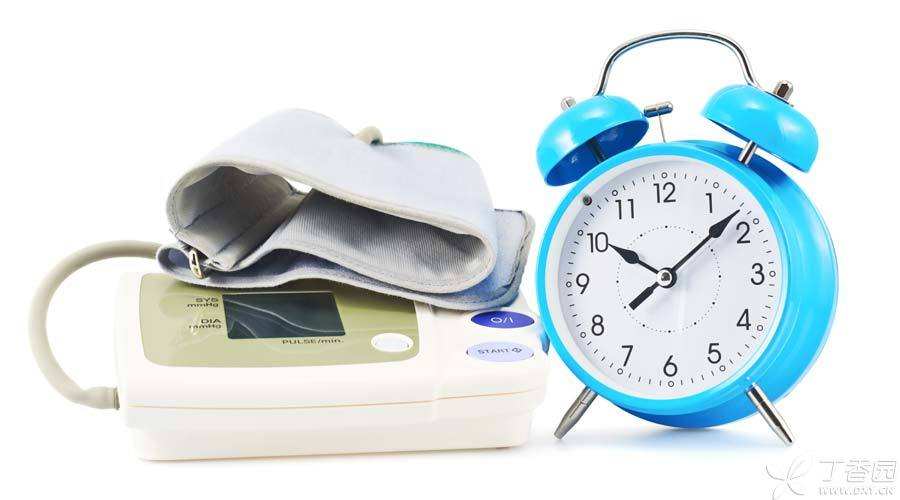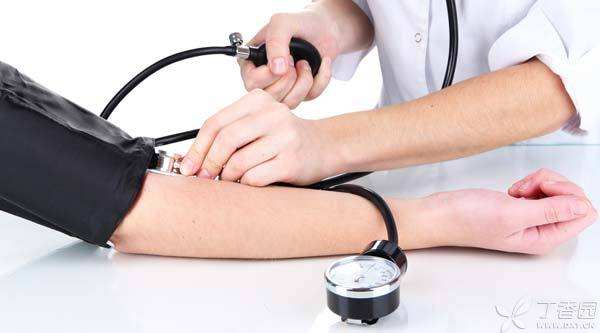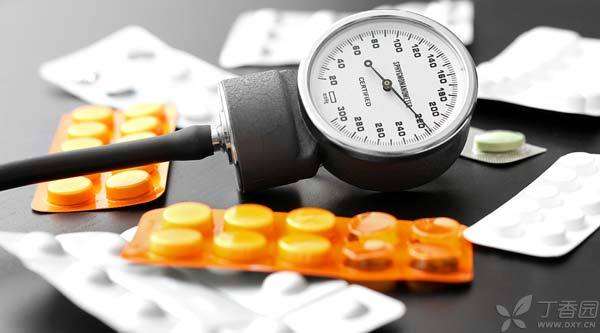
Liu Jiaoshou of the university has been suffering from hypertension for more than 10 years. He thinks that he has great experience in blood pressure management: taking medicine on time, insisting on daily self-test of blood pressure and exercising properly. After retirement, he also insisted on practicing Taijiquan every morning for several years.
However, one morning a few days ago, Liu Jiaoshou suddenly fainted during morning exercises and was sent to the hospital for diagnosis of cerebral hemorrhage. His life was saved, but the sequelae still seriously affected the quality of life.
The family wondered why the old man, who had always had good blood pressure control, suddenly became ill. A careful examination of Liu Jiaoshou’s medical history found that in the past half a year, Liu Jiaoshou often felt dizzy to varying degrees after getting up in the morning, but the time was very short. It was good to have a little rest, and he didn’t take it seriously.
In fact, this is the disaster caused by hypertension in the morning.
Hypertension is a common chronic disease, is also the most important risk factors for cardiovascular and cerebrovascular diseases. In all types of hypertension, early morning hypertension is often neglected, but its harm is not small. Many hypertension patients think that blood pressure can be measured once a day every day, but it is not.
A daytime measurement often cannot reflect the true blood pressure level, nor can it find signs of hypertension in the morning. Therefore, many hypertension patients think that their blood pressure is well controlled, but they do not realize that the [volcano] of hypertension in the morning is hidden around them and will [erupt] if they are not careful.
Is what hypertension in the morning?
Morning blood pressure can be defined as any of the following:
- Family blood pressure measurement results within 1 hour after waking up in the morning, before taking medicine and before breakfast; Ambulatory blood pressure records the blood pressure 2 hours after getting up; Blood pressure between 6: 00 and 10: 00 in the morning.
If the family’s early morning blood pressure is ≥ 135/85 mmHg and/or the clinic’s blood pressure is ≥ 140 mmHg, it is hypertension in the morning.

Why is there hypertension in the morning?
Early morning hypertension originates from the circadian rule of blood pressure. Controlled by the body’s biological clock, blood pressure changes continuously within 24 hours.
Even if the blood pressure is normal, the blood pressure level will show a relatively obvious circadian rhythm, which can be simply summarized as [two peaks and one valley].
After waking up and getting up in the morning, the blood pressure obviously rises from 8: 00 to 10: 00, showing a peak and then drops.
In the afternoon, from 17: 00 to 18: 00, the blood pressure rises from the trough to a peak again.
At night, from 2: 00 to 3: 00, the blood pressure is the lowest, and it is also a low valley, thus circulating.
Under physiological conditions, systolic blood pressure and diastolic blood pressure during awakening usually increase by 10% ~ 20% compared with sleep. If the increase is too large, it is a pathological state and harmful to human body, which should be paid attention to.
The Harm of Early Morning Hypertension
Elevated blood pressure in the morning can cause serious damage to heart, brain, kidney and blood vessels.
Early morning hypertension is the primary risk factor for high incidence of cardiovascular and cerebrovascular events, and it is more important to control early morning blood pressure in Asian population. Epidemiological investigation shows that about 40% of myocardial infarction and 29% of sudden cardiac death occur in the early morning.
Early morning hypertension is also the strongest independent risk factor for stroke, and the incidence of stroke in this period is 3-4 times higher than that in other periods. Therefore, stroke patients or stroke high-risk groups should control early morning blood pressure smoothly.
In addition, the relative risk of carotid atherosclerosis in patients with hypertension in the morning increases fivefold. It may also aggravate renal damage in patients with chronic kidney disease.
However, about 60% of the patients whose blood pressure is controlled in the clinic in our country have not been well controlled in the morning, which basically belongs to the blind area of blood pressure management. Therefore, it is urgent to understand and manage hypertension in the morning.

How to manage
Generally speaking, the occurrence of hypertension in the morning is not only related to its own pathophysiological reasons, high sodium intake, alcohol and tobacco, diabetes and other risk factors, but also caused by poor blood pressure management.
Early morning blood pressure reaching the standard means 24-hour blood pressure reaching the standard, and early morning blood pressure can better predict stroke risk than night blood pressure.
Therefore, it is especially important to manage blood pressure in the morning. We can do a good job in many ways:
Step 1 Measure blood pressure correctly
Monitoring methods include family blood pressure monitoring, 24-hour ambulatory blood pressure monitoring and clinic blood pressure monitoring. When conditions permit, two or three methods can be used in combination to more accurately grasp the blood pressure management.
The scientific measurement method should be, within 1 hour after getting up, usually between 6: 00 and 10: 00; Measure blood pressure as much as possible before taking medicine and breakfast. Before pressure measurement, the bladder should be emptied and the sitting position should be taken as much as possible.
For elderly hypertensive patients, in order to prevent postural hypotension, in addition to monitoring the morning blood pressure in the sitting position, the blood pressure in the standing position or the blood pressure in the lying position should also be measured.
2. Daily blood pressure management for hypertension patients in the morning
Like the general treatment of hypertension, three [restrictions] and four [persistence] should be emphasized when dealing with hypertension in the morning: limiting exercise intensity, limiting salt (less than 6g per day), fat intake, and restricting smoking and drinking; Adhere to regular medication, adhere to blood pressure measurement, adhere to regular follow-up, adhere to a good state of mind and adequate sleep.
However, the treatment of hypertension in the morning also has its particularity:
(1) Medication
Reasonable and standardized use of antihypertensive drugs is the key to effectively manage morning blood pressure, and the best blood pressure control scheme should be to ensure that the antihypertensive effect covers the whole 24 hours.
If hypertension is still not well controlled in the morning after taking the medicine, it can be replaced by a long-acting antihypertensive drug once a day under the guidance of a doctor.
The time of taking medicine can also be adjusted under the guidance of doctors according to the blood pressure in the morning and at night, so as to better control the blood pressure in the morning.
When necessary, combine drugs or use compound preparations.
(2) Exercise in the morning
Compared with healthy people or ordinary hypertension patients, early morning hypertension patients have an increased risk of cardiovascular events after early morning exercise compared with other periods. Therefore, it is safer to avoid strenuous activities between 6: 00 and 10: 00, and it is suggested to arrange the exercise time in the afternoon or evening.
For patients who must insist on morning exercises, short-acting antihypertensive drugs, such as nifedipine, can be taken after getting up in the morning under the guidance of doctors to improve the safety of morning exercises.
The elderly should pay special attention to the fact that they should not get up immediately after waking up in the morning, and their activities should not be too strong after getting up. They should gradually transition from a small amount to daily work and life.
(3) [Three Knows]
- Knowing that it is very important to control hypertension in the morning can effectively reduce cardiovascular and cerebrovascular events; Know to insist on measuring the family blood pressure before taking medicine in the morning, and accurately record it, and bring it to the doctor when returning to the clinic. Know the correct method to insist on taking long-acting antihypertensive drugs every morning and guide patients’ families to measure morning blood pressure.
[The plan of the day is in the morning], so to make blood pressure [happy and smooth] to spend the day should start with paying attention to morning blood pressure.
In short, for hypertension patients, especially the elderly hypertension patients, while forming the correct morning blood pressure monitoring habits, they should choose and insist on taking sufficient doses of long-term antihypertensive drugs, and also pay attention to the adjustment of lifestyle, diet structure, exercise habits, etc.
Only by playing the [combination boxing] of blood pressure management can the [volcano] of hypertension in the morning not erupt easily.
Responsible Editor: Ni Jiahua
